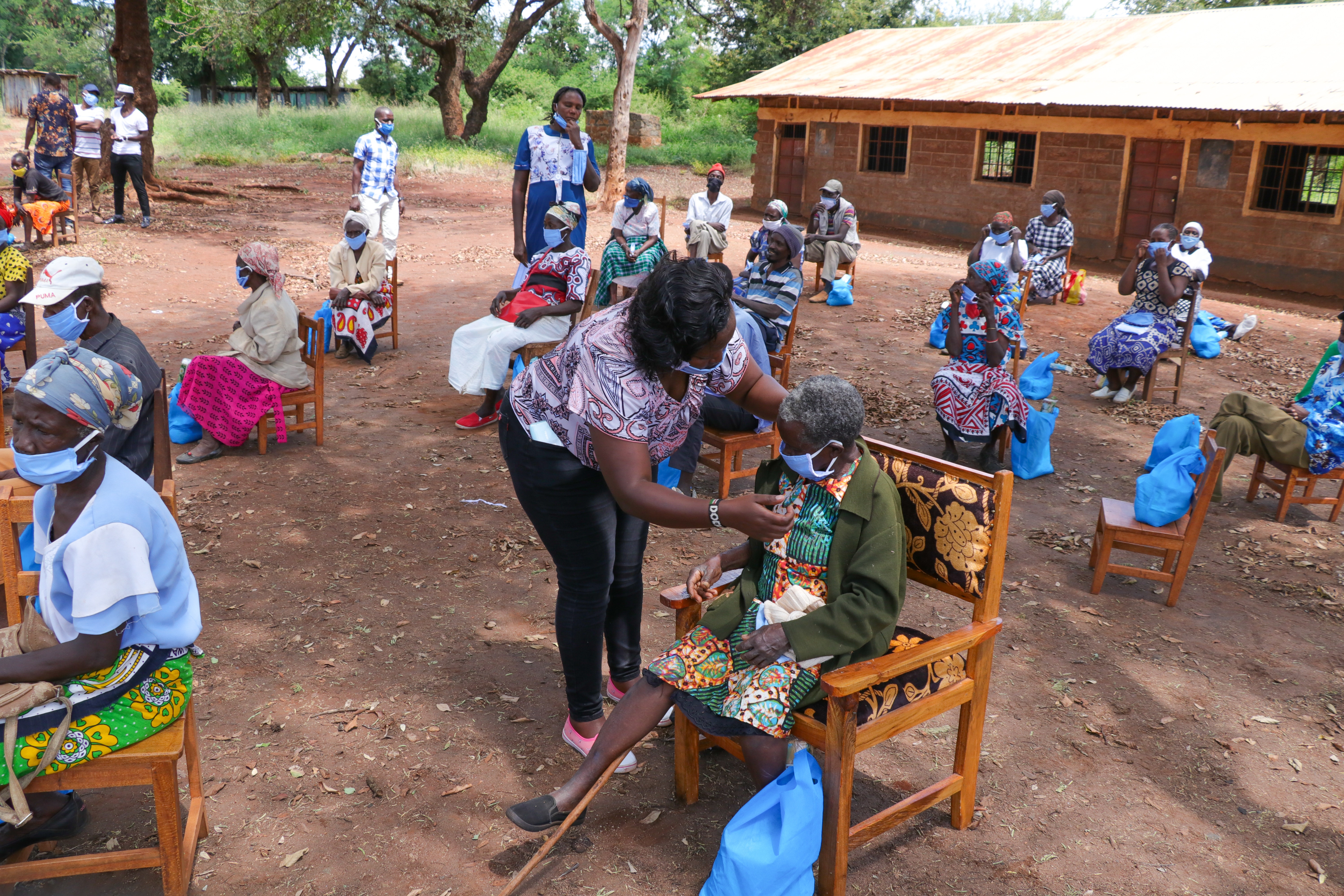By Natalia Venegas / GICJ
In January of 2022, the United Nations published a report revealing the socio-economic impact of COVID-19. The study was conducted by the Economic Community of West African States (ECOWAS), along with the Economic Commission for Africa (UNECA) and the World Food Programme (WFP). Almost three years after the start of the pandemic, Covid-19's effects are still being felt, as shown in the report. The pandemic has mainly resulted in the lack of progress in development as a result of the economic recession.
The COVID-19 crisis has had a number of implications on the livelihoods of people living in West Africa, with extreme poverty rising by almost 3 per cent since the beginning of the pandemic. In partic ular, Sekou Sangare, the ECOWAS Commissioner for Agriculture, Environment, and Water resources, stated that the pandemic has caused stagnation in the progress made in combating food insecurity and malnutrition.
ular, Sekou Sangare, the ECOWAS Commissioner for Agriculture, Environment, and Water resources, stated that the pandemic has caused stagnation in the progress made in combating food insecurity and malnutrition.
The cause of this backlink can be seen in the steps taken to prevent the spread of the Coronavirus, which included border closures, movement restrictions, and the disruption of supply chains. Mr Sangare also noted that while the government's response to minimize the effects of Coronavirus has been accurate, the residual effects of the health and economic crisis will continue to be a burden to the population. The situation has reinstated the debate on what governments can do to prevent the spread of the virus, which has already generated other severe humanitarian problems.
Food access in West Africa is concerning, particularly in the most conflicted areas such as the Lake Chad Basin, the Sahel, and the Liptako-Gourma region, which borders Burkina Faso, Mali, and Niger. Food insecurity poses a special risk to those fleeing violence. Currently, 25 million people cannot meet their basic food needs, which is 35 percent more than in 2020. Because of this, people are selling their assets and livelihoods just to survive.
The international community recommended the use of social safety nets, such as school meals, emphasizing the special needs of women and children. In addition, ECOWAS member states have expanded social protection programs, as well as food distribution to the most vulnerable, as seen in Mali and Niger. According to the Director of the ECA’s Sub-Regional Office, Ngone Diop, the goal is to offer decision-makers at the national and regional level better tailored policy options for them to adopt.
As stated by the Regional Director for West Africa, Chris Nikoi: “WFP is committed to engage more with ECOWAS in enhancing coordination and facilitating experience sharing among countries, to ensure social protection systems in the region support food security and nutrition and provide resilience to shocks”. [1]
Geneva International Centre for Justice (GICJ) is deeply concerned about the rise in poverty and food insecurity in West Africa. GICJ calls countries to implement public policy recommendations made by ECOWAS, WFP and UNECA and take action on the disastrous situation at hand. GICJ encourages regional cooperation among countries and regional bodies to provide shared assistance and protection frameworks from which all parties can benefit. Finally, special protection must be provided to refugees fleeing conflict in the region by securing their physical integrity and their access to a livelihood in line with human rights.
Justice, Human Rights, Geneva, geneva4justice, GICJ, Geneva International Centre For Justice
[1] https://news.un.org/en/story/2022/01/1110192
Image source: https://www.pexels.com/photo/black-elderly-people-sitting-on-chairs-in-yard-of-hospital-in-poor-african-village-4483669/












